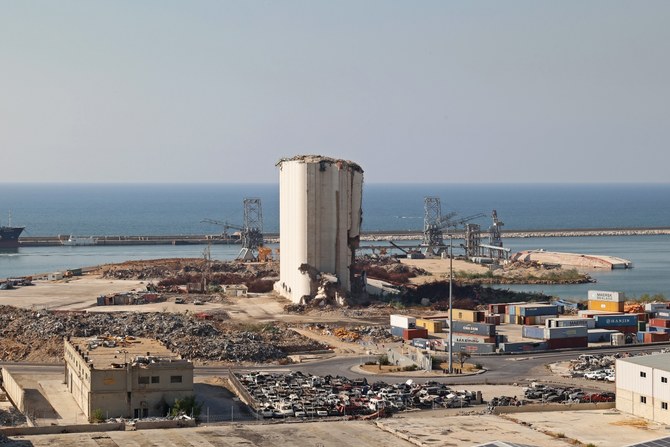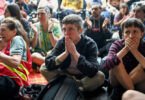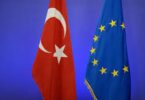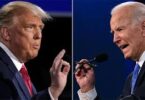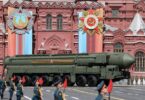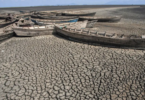Mohamed Chebaro
As the people of Lebanon last week marked the third anniversary of the devastating Beirut explosion, one of the world’s biggest non-nuclear blasts, despair remained the name of the game in a country that continues to face extreme internal and external challenges. Most of these crises are authored by a discredited political elite dominated by advocates of resistance to Israel, as championed by Hezbollah. Meanwhile, the country is still without a president, a functioning government, a governor of its central bank, and soon, perhaps, will be without the heads of its armed forces, security services, judiciary and so on.
All of this while the midsummer winds of instability continue to blow along the border with Israel and internally within Palestinian refugees camps, adding to the countless woes endured by the population, regardless of which side of the political divide their loyalty tilts toward. The anniversary of the massive explosion at Beirut’s port – which destroyed a large section of the Lebanese capital on Aug. 4, 2020, killed more than 220 people and injured at least 6,500 – passed as you might expect for the commemoration of an occasion that is imprinted in the memories of the Lebanese people generally and has left deep scars in the souls of those who lost loved ones. Impunity for those whose actions resulted in the disaster is still the name of the game three years later, and this is in keeping with a tradition of such crimes in the country being attributed to unknown individuals. Authorities allude to the fact that the disaster was triggered by a fire in a warehouse where a vast stockpile of the industrial chemical ammonium nitrate had been stored for years without proper safety precautions.
The investigation into the disaster has been politicized, shackling the judiciary and effectively rendering it redundant. Justice for the victims therefore remains out of reach, as versions of the truth(s) are subject to interpretation based on individual allegiances that reflect the same horizontal and vertical divides that have made the once quasi-independent judiciary ineffective. Since its earliest days, the probe has faced a slew of political and legal challenges. In December 2020, the lead investigator, Judge Fadi Sawan, charged former prime minister Hassan Diab and three ex-ministers with negligence. As the political pressure mounted, the judge was removed from the case. His successor, Judge Tarek Bitar, unsuccessfully asked for the immunity from prosecution granted to MPs who formerly served as cabinet ministers to be lifted in this case. In response the powerful, Iran-backed Hezbollah launched a smear campaign against Bitar, accusing him of bias and demanding he be dismissed. His investigation was suspended in December 2021 as he faced a barrage of lawsuits from politicians he had summoned to the inquiry to answer charges of negligence.
In January this year, though, Bitar resumed his investigation and charged eight new suspects, including high-level security officials and Lebanon’s top prosecutor, Ghassan Oueidat. Oueidat in turn charged the judge with insubordination and “usurping power.” Bitar remains the investigating judge despite not setting foot inside Beirut’s justice palace for months. The stalled investigation into the explosion is just one of many long-running deadlocks Lebanon is faced with, leading people to question whether or not the country is ripe for a slide into another round of violence of some sort. The inhabitants of this small yet complex Mediterranean country are well-trained in forecasting and speculating about the likely sources, and the wheres and the whens, of the next troubles they are likely to face. And evidence has been piling up, internally and externally, against a backdrop of the complete absence of any executive power able to deal with the ramifications of the crises afflicting the country.
The most recent such sign of trouble brewing was the violence that broke out last week between the mainstream Palestinian faction Fatah and hard-line Islamists at Ain Al-Hilweh refugee camp south of Beirut, where at least 13 people, most of them militants, were killed while the Lebanese security forces stood by and watched. Tensions between Israel and militant group Hezbollah have also been on the rise, following recent inflammatory incidents along the UN-controlled boundary between Lebanon and Israel, 17 years after the last devastating war between the two sides, in 2006. Many have questioned Hezbollah’s brinkmanship and the timing of its volatile border clashes that are testing Israeli resolve, especially since Israel, too, seems to be in the grips of an internal schism, triggered by the election in November of the most right-wing administration in the country’s history.
In particular, a large section of the Israeli population is at odds with the new government over its planned reform of the judiciary, which many believe is an attempt to help Prime Minister Benjamin Netanyahu avoid the corruption charges he faces and the prospect of a possible prison sentence. Though Netanyahu has been cautious about becoming embroiled in all-out conflicts in the past, many see in the latest incidents along the border as signs of an emboldened Hezbollah that feels less under pressure, which in turn is a reflection of a buoyant Iran. As a result, matters could easily spiral out of control, to the further detriment of Lebanon, given that Netanyahu seems under pressure and desperate domestically and could do with external distractions. This scenario becomes more plausible when viewed through the lens of the various cross-border encroachments this year, in particular a serious incident in April when a large salvo of rockets was fired from Lebanon into Israel in response to Israeli police raids on Al-Aqsa mosque in Jerusalem.
While a Palestinian faction in Lebanon claimed responsibility for that attack, it was widely feared in Lebanon that the militants had most likely acted in coordination with Hezbollah, which controls much of the country, especially in southern Lebanon. Given the risks of strategic miscalculations by the Israeli government or Hezbollah, Lebanese fears of an all-out conflict are increasingly plausible. For months now, all domestic indicators have indicated that the country has reached a dead end, as a result of the inability of its discredited political elite to comply with international demands to implement the basic economic and social reforms that would unlock urgently needed international economic aid for the stricken country. In the absence of such action, and unless the political elite change course, Lebanon’s summer is likely to remain suffocatingly hot, with the threat of fires – natural or man-made – breaking out that could make life even more unbearable for the majority of the people of Lebanon.
Arab News

